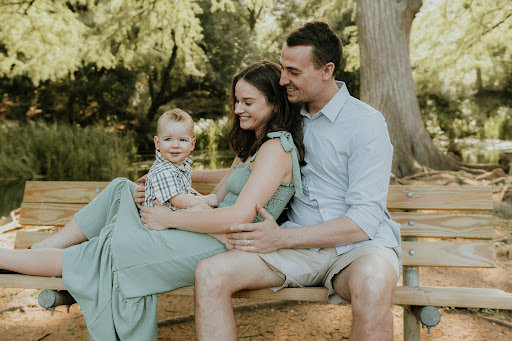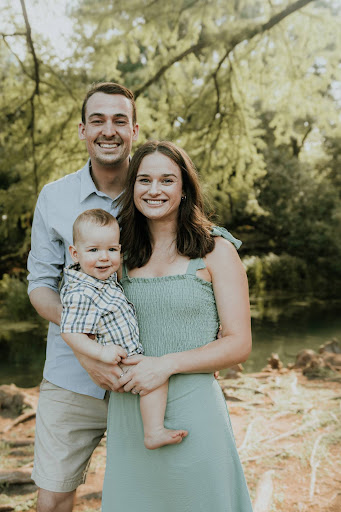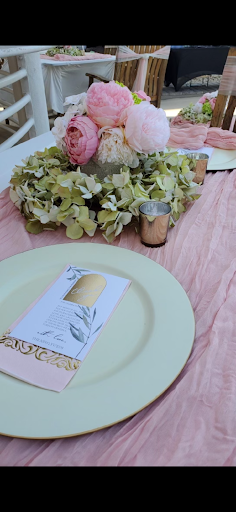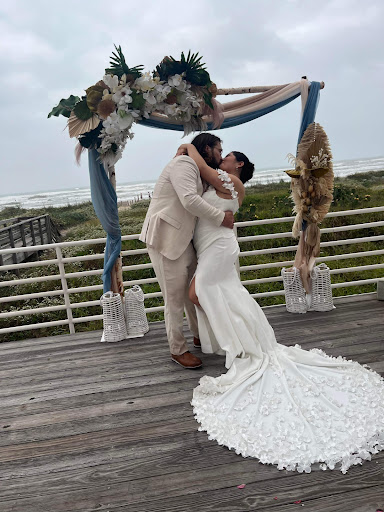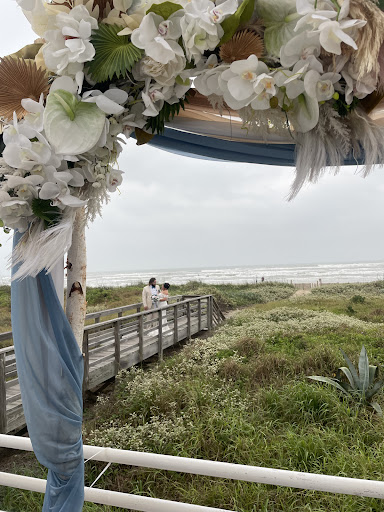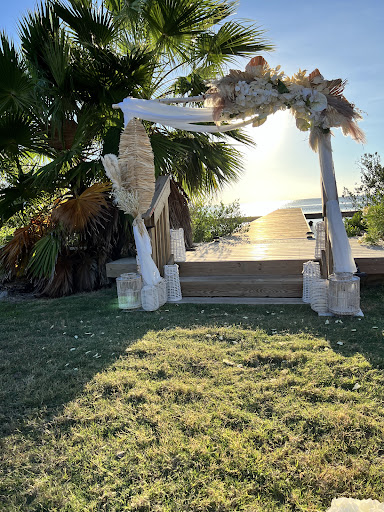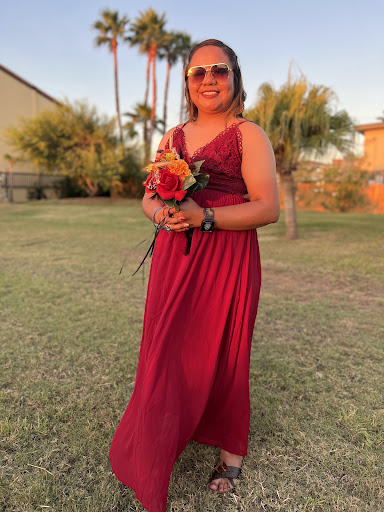Vendor selection is a pivotal process in orchestrating your ideal Texas Hill Country wedding. This playbook will guide you through identifying top-notch vendors, fostering strong communication, and creating a harmonious working environment. By understanding how to effectively collaborate with florists, photographers, catering teams, and venue managers, you can ensure a seamless wedding experience. With a strategic approach, you can build a dream team that not only understands your vision but also enhances the beauty and flow of your special day.
Key Takeaways:
- Emphasizes the importance of establishing clear communication channels among vendors to enhance collaboration.
- Highlights the benefits of leveraging local resources and relationships to create a unique and memorable wedding experience.
- Provides strategies for conflict resolution to maintain positive vendor relationships throughout the planning process.
Understanding the Texas Hill Country Wedding Landscape
The Charm of Texas Hill Country
The Texas Hill Country captivates with its stunning vistas of rolling hills, expansive bluebonnet fields, and pre-civil war charm, creating a picturesque backdrop for your wedding. With its rustic elegance and welcoming atmosphere, it perfectly balances outdoor beauty and cozy venues, making it an ideal choice for couples seeking a unique and romantic setting.
Popular Wedding Venues in the Region
Texas Hill Country boasts an array of wedding venues that cater to diverse tastes, including historic estates, scenic wineries, and luxurious ranches. Popular spots include the Ambassador Lodge in Wimberley and the Riverwalk in San Antonio, both offering breathtaking scenery and exceptional amenities.
Some other standout venues include Camp Lucy in Dripping Springs, known for its stunning chapel and outdoor spaces, and the Becker Vineyards, where you can host your ceremony among sprawling vineyards. Each venue reflects the unique character of the region, ensuring your wedding day is as memorable as the landscape itself.
Seasonal Considerations for Hill Country Weddings
When planning your Hill Country wedding, seasonal factors play a significant role, impacting both your venue choice and guest experience. With a climate that varies from mild winters to sweltering summers, understanding these changes ensures a more enjoyable celebration.
Spring and fall are particularly popular for weddings, offering comfortable temperatures and vibrant floral blooms. However, summer can see temperatures soar above 100 degrees Fahrenheit, making indoor venues or evening events more appealing. Conversely, winter months, while cooler, reveal stunning landscapes and potential discounts on venue rentals, creating a unique charm for intimate ceremonies.
Key Vendor Categories for Successful Collaborations
Venue Coordinators
Venue coordinators serve as the backbone of any wedding, managing logistics and ensuring everything runs smoothly. They are your primary point of contact for vendor arrangements and can provide valuable insights into the venue’s rules and layouts. Collaborating effectively with your venue coordinator means you can navigate challenges with ease and keep your vision intact.
Photographers and Videographers
You will want photographers and videographers who understand your style and vision. Their job isn’t just to capture moments; it’s about telling a story that resonates with your emotion and wedding theme. A strong collaboration with these professionals ensures they know the critical moments you want highlighted.
Choosing the right photographers and videographers hinges on viewing their portfolios and discussing your expectations. You should provide them with a timeline and specific shots you desire to ensure they capture your day authentically. Regular communication will keep them informed about any changing dynamics on your wedding day.
Caterers and Beverage Services
Caterers and beverage services play a significant role in enhancing your guests’ experience. Their ability to provide delicious food and drink can elevate your wedding celebration. Work closely with your caterer to customize menu options that reflect your tastes and accommodate dietary restrictions.
When collaborating with caterers, consider engaging in tastings and menu planning sessions. This allows you to refine your choices and ensure the offerings align with your wedding theme. Clear communication is key to managing expectations around service styles, timing, and presentation, ultimately ensuring a seamless dining experience for your guests.
Floral Designers and Decorators
Floral designers and decorators are imperative in crafting the visual narrative of your wedding. They help bring your aesthetic vision to life with blooms and decor tailored to your style. Effective collaboration with these artists can turn your venue into a stunning backdrop.
When discussing your needs with floral designers, be specific about your color palette and floral preferences. Bringing inspiration photos can help communicate your vision clearly. Also, consider the layout and logistics for installation, as proper timing ensures your flowers are fresh and the decor aligns beautifully with your overall theme.
Entertainment and DJs
Your choice of entertainment and DJs sets the mood for the entire celebration. They have the ability to energize your guests and create an unforgettable atmosphere. Establishing a strong connection with your DJ allows you to curate a playlist that reflects both your taste and your guests’ enjoyment.
In your discussions with DJs and entertainers, share your must-play and do-not-play lists, along with the flow of the evening. Consider their experience with wedding timelines, as a seasoned DJ can facilitate smooth transitions between events. Collaborative planning ensures the energy remains high from the ceremony through to the final dance.
Building Your Vendor Team
Assessing Your Wedding Vision
Begin by identifying your unique style and preferences for the wedding. Consider elements like the theme, color palette, and overall atmosphere you wish to create. This clarity will guide you in selecting vendors who align with your vision and bring your ideas to life.
Crafting a Budget for Vendor Services
Establishing a realistic budget is fundamental to managing expectations and securing the right vendors. Allocate funds based on the importance of each service, ensuring you prioritize what matters most to your experience.
It’s advisable to break down your overall budget into categories, such as catering, photography, and floral arrangements, typically representing 10-15% of your total budget for each. Always include a contingency fund of at least 5-10% to address any unexpected expenses that may arise during the planning process.
Researching and Shortlisting Potential Vendors
Start your vendor selection by researching options in the Texas Hill Country. Utilize platforms like WeddingWire and The Knot to gather reviews and recommendations to compile a list of potential candidates.
When compiling your shortlist, focus on vendors’ specializations and previous work that resonates with your vision. Aim to select at least three options in each category, ensuring you have a variety of styles and price points to consider during your decision-making process.
Conducting Interviews and Meetings
Schedule meetings with your shortlisted vendors to gauge compatibility and discuss your vision in detail. This interaction will provide insights beyond their portfolios.
During these interviews, prepare questions that explore their experience, availability, and approach to collaboration. Observing their enthusiasm, communication style, and willingness to adapt can significantly influence your decision. Additionally, asking for references will give you a better understanding of their reliability and professionalism.
Establishing Effective Collaboration
Clear Communication Strategies
Establish clear communication channels with your vendors to ensure everyone is on the same page. Regular updates, whether through email or scheduled meetings, help prevent misunderstandings. Use collaborative tools to keep everyone informed about decisions and changes, fostering a sense of teamwork.
Setting Expectations with Each Vendor
Clearly outline what you expect from each vendor at the start of your collaboration. This includes services, timelines, and specific responsibilities to avoid any ambiguity that could lead to conflict later on.
When setting expectations, detail your vision for the wedding and discuss how each vendor fits into this picture. For example, if your florist needs to know the color palette, provide swatches or images to guide their choices. Holding an initial meeting to compile a list of each vendor’s key deliverables and deadlines further solidifies these expectations, ensuring everyone knows their role in bringing your dream wedding to life.
Utilizing Technology for Coordination
Incorporate technology to streamline vendor coordination and keep everything organized. Use project management apps or shared online documents to track tasks, share updates, and facilitate real-time communication among your team.
Choosing the right technology can make vendor collaboration substantially more efficient. For instance, using platforms like Trello or Asana allows you to create checklists for each vendor while maintaining a centralized location for all discussions and files. This not only keeps your planning organized but also gives vendors immediate access to pertinent information, boosting productivity and speeding up decision-making.
Developing a Timeline for Vendor Activities
A well-structured timeline is imperative for managing vendor activities effectively. Create a detailed schedule that maps out key milestones and deadlines for each vendor to follow.
Your timeline should outline significant dates like deposit deadlines, final payment dates, and when each vendor needs to arrive on-site. For example, a three-day pre-wedding checklist can include when the photographer arrives for the rehearsal dinner, when the florists set up their arrangements, and when sound checks occur for the musicians. By coordinating these timelines, you ensure that everything aligns perfectly on the day of your celebration.
Navigating Challenges in Vendor Collaboration
Handling Conflicts and Disputes
When conflicts arise among your vendors, address them promptly to maintain a harmonious collaboration. Engage in open dialogues, focusing on solutions rather than blame. Encourage vendors to voice their concerns and be willing to negotiate. Having a neutral mediator can also help facilitate discussions if needed.
Adapting to Last-Minute Changes
Your ability to adapt to last-minute changes can significantly impact your wedding’s success. Flexibility is key; ensure that all vendors are prepared for potential surprises by discussing contingency plans upfront. This preparation creates a support system that can quickly pivot when challenges arise.
Last-minute changes are often unavoidable in wedding planning. Whether it’s a vendor cancelation, unexpected weather changes, or a shift in your timeline, having a solid backup plan is important. Ensure each vendor has a clear understanding of your priorities and is capable of making adjustments with minimal disruption. For example, if the florist has to substitute a flower, discuss alternative options in advance to avoid stress on the big day.
Understanding Contracts and Agreements
It’s vital to thoroughly review contracts and agreements with your vendors to avoid misunderstandings. Pay attention to details like cancellation policies, payment schedules, and specific deliverables. Ask for clarification on any points that seem vague to ensure everyone is aligned.
Contracts serve as the backbone of your vendor relationships, encapsulating the expectations and commitments of both parties. A clear agreement outlines what is to be delivered, when, and at what cost, which protects your interests. Look for hidden fees or ambiguous clauses that could cause conflicts later. If your venue requires a specific insurance policy, ensure your vendors are compliant to avoid last-minute issues. Always maintain open lines of communication with vendors regarding any contract updates or changes, which helps build trust and accountability.
Tips for a Successful Wedding Day Execution
- Conduct Final Walk-Throughs with vendors to review arrangements and logistics.
- Assign a Day-of Coordinator to oversee the schedule and manage vendor interactions.
- Ensure Backup Plans are established for every potential issue.
- Foster a Positive Vendor-Client Relationship to encourage collaboration and enjoyment.
Final Walk-Throughs with Vendors
Conducting a final walk-through with your vendors provides an excellent opportunity to revisit timelines and logistics. This vital step ensures every detail is understood and compliant with your vision. Discuss the setup, layout, and key moments to clarify expectations and avoid surprises on the big day.
Assigning a Day-of Coordinator
Having a dedicated day-of coordinator is imperative for smooth execution. They become the point person for all vendors, allowing you to relax and enjoy your special day without unneeded stress.
A day-of coordinator brings organization and professionalism to your event. They manage timelines, ensure vendors arrive on schedule, and handle any issues that arise, allowing you to soak in the moments without worrying about logistics. With this role clearly defined, your vendor team can operate seamlessly, keeping everything on track.
Ensuring Backup Plans are in Place
Effective wedding planning means preparing for unexpected challenges. Ensure you have solid backup plans established, particularly for key vendors and outdoor elements that might be affected by Texas Hill Country weather.
Consider scenarios like inclement weather, equipment malfunction, or vendor delays. Having backup vendors or alternative plans for seating or locations ensures you can proceed smoothly with your celebration. Discuss these plans in advance with your team, fostering confidence that every detail is managed, no matter what circumstances arise.
Fostering a Positive Vendor-Client Relationship
Building strong vendor relationships not only enhances service quality but also contributes to a joyful wedding environment. Open communication, respect, and appreciation can significantly improve collaboration among your team.
Engaging positively with your vendors sets a cooperative tone that encourages them to strive for your satisfaction. Regular check-ins and expressing gratitude for their efforts will cultivate a supportive atmosphere, ensuring they are motivated to go the extra mile on your wedding day. This connection enriches the experience for all parties involved and promotes a successful event.
Final Words
Upon reflecting on ‘The Vendor Collaboration Playbook – Building a Dream Team for Every Texas Hill Country Wedding’, you understand the significance of carefully selecting vendors who align with your vision. Establishing strong partnerships ensures a seamless execution of your wedding plans, allowing you to focus on what truly matters: celebrating your love. Utilize this guide to navigate the diverse options available and create a cohesive experience tailored to your preferences. Your dream team awaits in the picturesque Texas Hill Country, ready to bring your vision to life.
FAQ
Q: What is ‘The Vendor Collaboration Playbook’?
A: ‘The Vendor Collaboration Playbook’ is a comprehensive guide designed to help couples in Texas Hill Country assemble their ideal wedding team, focusing on collaboration and effective communication among various vendors.
Q: Who is the target audience for this playbook?
A: The playbook is aimed at engaged couples planning their weddings in Texas Hill Country, as well as wedding planners and vendors looking to enhance their collaboration processes.
Q: What types of vendors are covered in the playbook?
A: The playbook addresses a variety of vendors including photographers, caterers, florists, musicians, and venue coordinators, emphasizing their roles in successful wedding planning.
Q: How does the playbook assist in vendor collaboration?
A: It provides practical tips, checklists, and communication strategies to facilitate smooth collaboration between different vendors, ensuring a seamless wedding experience for couples.
Q: Are there case studies or examples included?
A: Yes, the playbook features real-life case studies and examples from successful weddings in Texas Hill Country to illustrate effective vendor collaboration.
Q: Can wedding planners benefit from this playbook?
A: Absolutely. Wedding planners can use the playbook to enhance their coordination skills and foster better working relationships with vendors, leading to successful events.
Q: Where can I purchase ‘The Vendor Collaboration Playbook’?
A: The playbook is available for purchase online through the official website dedicated to Texas Hill Country wedding planning resources.




